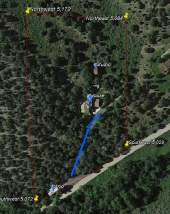posted 4 years ago
Hello everyone.
I am looking for information about starting a small scale permaculture nursery in a hot arid climate. I am looking for a practical information, as I have found some books about the business side of starting a nursery. I am also looking for information ok starting from seed (not everything of course, but this my preferred choice for some of the fast growing trees and plants). I want to learn what time of the year to start seeds/propagate and graft cuttings, size of pots and flats/plugs, more about grafting etc. I am looking for information for both annual and perennials, though it’s the perennials that I have trouble finding info for. For example, I want to know how asparagus plants are started from seed, a-z info, because I don’t want to import it as it’s a lengthy and complicated procedure among other things. Everywhere I read the instructions are very vague, they tell you to sow seeds, then next year plant them out in their permanent location. The most important piece information of what to do with the seedlings between starting them in small pots and planting them out is missing.
So why do I want to start a nursery? Even if it’s not going to be a big project, I still want to start it. Most fruit trees (and not only) available locally are imported. Most of the time no one will even tell you the variety name, it’s good if they tell the country it came from. Of course we have a few bigger nurseries that sell all sorts of fruits trees (even apples, cherries, plums etc) with labeled varieties, but they’re sooooo expensive and the nursery just wants to sell, that’s it. Very often these saplings/young tees are sold with a rootball that has native soil attached to it (especially if it’s clay). These types of tress/plants have a really hard time adapting to our soils and climate, some just die with the onset of summer. I have spent thousands on plants, and lost a good majority of them. So I want to not only start a business, I want to experiment and grow locally adapted trees and plants.
So I am looking for any info that would be helpful: books, ebooks, other publications, videos, even courses.

 1
1




 3
3





 2
2











 1
1




 1
1




 2
2




 2
2















 1
1

















